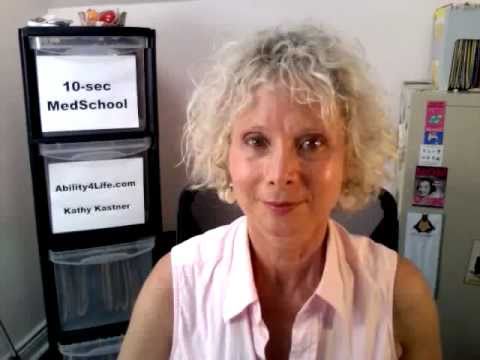e-Patients Blog
The blog of the Society for Participatory Medicine. Want to be a contributor?
Screw HIPAA: Here’s a Look at My Doctor’s Office
A few months ago, I complained about the layout of one of my doctor's offices. There's a rough layout drawing of the office waiting area to the side there. I'm standing just in front of the number 1, while people are sitting along the wall behind me. Do you see the...
Erin Moore’s speech: What if CF had a Collaborative Care Network?
SPM member Erin Moore (@EKeeleyMoore) is one heck of an activist parent. She sees the future, she has a stake in it - a kid with a chronic disease - and like many of us, she's not waiting around for someone else to make it happen: she's engaged in creating the future...
Rheumatoid Arthritis Ruined Her Elbow, But Nothing Could Break Her Hope
SPM member Kelly Young is one of the most spectacular, potent, world-changing e-patients I've ever seen. (See our many posts here about her activism.) Aside from all her work on RAWarrior.com and her Foundation, see how she uses this case to teach. Peer-to-peer...
Resources for health literacy
Guest blogger Kathy Kastner gives us an overview of the health literacy resources on the Internet. It is an important topic – how can patients be engaged and participatory if they don’t understand what they are told? Kathy Kastner is Blogger and Curator...
That is a Real Doctor
Guest blogger Peggy Zuckerman tells us a story about a young competent doctor and how transparency and openness is key to giving better care. Peggy Zuckerman never intended to be a patient advocate, not even a patient! But after her diagnosis with a "tiny,...
“I’d be 400 years behind” – updated, bigtime
One of the most-quoted eye-opening quotes in "Doc Tom" Ferguson's e-Patient White Paper is this: As Donald Lindberg, director of the National Library of Medicine, explains, “If I read and memorized two medical journal articles every night, by the end of a year I’d be...
Peer-to-peer health care is a slow idea that will change the world
"The most exciting innovation of the connected health era is…people talking with each other." This is the essential point of a post that is garnering some great comments on my personal blog. I weave together concepts I developed in my work at the Pew Research Center...
Monthly introduction to e-Patients.net
This is our monthly introduction to e-Patients.net, blog of the Society for Participatory Medicine. Follow the Society on Twitter (@S4PM), Facebook, and LinkedIn. Here's how to become a Society member, individual or corporate. Our publications: This...
What I Wish I’d Known Earlier…
This summer, I am reflecting and writing about what I wish that I had known earlier about getting good care following active cancer treatment, based on my experience with five different cancer diagnoses and what I have learned from others. If you have been diagnosed...
“Apprenticeship” for developing patient skills: results from the CollaboRhythm platform
I've just attended John Moore MD's "defense," as they call it - his presentation of the results from his PhD thesis project at the M.I.T. Media Lab. The project has participatory medicine written all over it: it's about Developing the role of the patient using an...
Ivan Oransky (Reuters, RetractionWatch) joins MedPage Today
I'm thrilled to say that Dr. Ivan Oransky is now VP and editorial director of MedPage Today. From the announcement in Crain's New York: "Dr. Oransky, previously on the editorial staff at Scientific American and The Scientist and most recently executive editor of...
PCORI and us
You may remember that I'm a Patient Reviewer for PCORI (Patient Centered Outcomes Research). PCORI, a federal initiative, helps people make informed health care decisions, and improves health care delivery and outcomes, by producing and promoting high integrity,...

